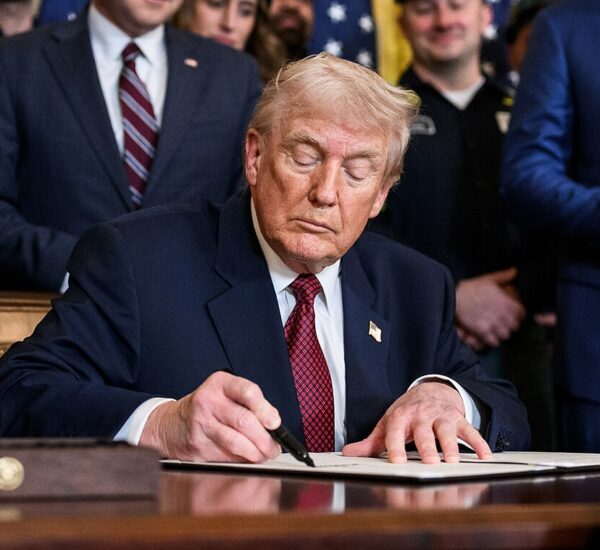Republicans Clash In Congress
In a sharp rebuke to weak border security proposals, Senator Lindsey Graham (R-SC) has introduced a bold plan to fully restore funding for President Trump’s border wall and immigration enforcement agenda—after Senator Rand Paul (R-KY) proposed cutting those efforts nearly in half.
Graham, who chairs the powerful Senate Budget Committee, is making it clear: America needs strong borders, not half-measures.
Earlier this month, Paul shocked many conservatives when he unveiled a budget that slashed funding for Trump’s wall to just $6.5 billion and reduced detention spending to $22.5 billion. In contrast, Graham’s plan sticks to the original Republican blueprint, delivering the full resources needed to secure the southern border and stop the surge of illegal immigration.
“As Budget Chairman, I will do everything in my power to ensure President Trump’s border security plan is fully funded,” Graham said. “This is about law and order. This is about protecting American families.”
Under Graham’s proposal, Customs and Border Protection (CBP) would receive $46.5 billion to finish construction of the border wall, build access roads, and deploy critical infrastructure like cameras, lights, and sensors to detect and deter illegal crossings.
Graham would also authorize $45 billion for Immigration and Customs Enforcement (ICE) to expand detention facilities and enforce the rule of law—nearly doubling the amount Paul proposed. These investments would strengthen America’s ability to detain criminal aliens, remove repeat offenders, and end the catch-and-release policies that have plagued the system for years.
Senator Paul defended his numbers by citing a CBP estimate that wall construction would cost $6.5 million per mile. But Graham and senior Republicans argue that Paul’s budget fails to account for operational security, long-term costs, and the broader infrastructure needed to protect the homeland.
Conservative voters have long backed Trump’s promise to build the wall, enforce immigration laws, and protect American sovereignty. With illegal border crossings rising and cartel activity increasing, Graham’s move sends a strong signal: the days of open borders are over.
The battle now shifts to the Senate floor, where lawmakers must decide: will they fully fund the president’s border security plan—or cave to half-measures?






